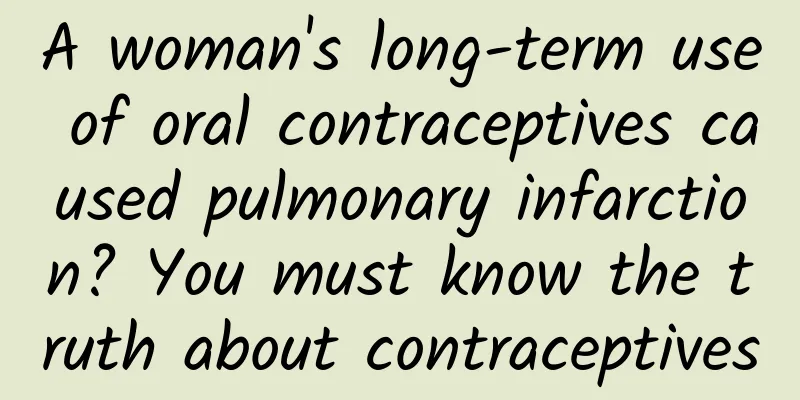Beware of the “health assassin” trans fatty acids!

|
Trans fatty acids are very common in our lives Pick up a pack of snacks at random from the supermarket shelf Maybe it says " trans fatty acids " on them. But many people don't take it seriously. Think "A little trans fat, what can it do to me~" Little do people know that it is quietly endangering the health of billions of people So, what are trans fatty acids? Where does it mainly come from? How can we avoid consuming excessive trans fatty acids? Let’s take a look together below! What are trans fatty acids? Trans fatty acids refer to unsaturated fatty acids containing one or more non-conjugated trans double bonds in the carbon chain. Trans fatty acids are not essential nutrients for the human body. Excessive intake of trans fatty acids may pose a potential threat to human health. Studies have shown [1] that excessive intake of trans fatty acids increases the risk of atherosclerosis and coronary heart disease, and may interfere with the normal metabolism of essential fatty acids, and have adverse effects on children's growth and development and nervous system health. Therefore, the "Dietary Reference Intake of Nutrients for Chinese Residents" recommends that the maximum limit of trans fatty acids produced by food industry processing in the diet of children over 2 years old and adults should account for 1% of the total dietary energy, which is approximately equivalent to an intake of 2 grams per day. Where do trans fatty acids mainly come from? There are two main sources: natural sources and those produced during processing . Natural trans fatty acids are mainly found in ruminants such as cattle and sheep, such as beef, mutton, and dairy products. This is because the bacteria in the stomach of ruminants participate in the digestion process and ferment to produce trans fats. During the processing , trans fatty acids are mainly produced by hydrogenation and partial hydrogenation of unsaturated fatty acids (such as vegetable oils). For example, edible hydrogenated oils, margarine (margarine), shortening, cocoa butter substitutes (cocoa butter analogs), non-dairy cream, powdered oils and fats and other edible oil products all contain certain trans fatty acids. In addition, liquid oils such as vegetable oils will also produce trans fatty acids during high-temperature and long-term processing such as refining, deodorization, and frying. According to the "Dietary Intake Levels of Trans Fatty Acids of Chinese Residents and Their Risk Assessment (2012)", the overall trans fatty acid intake of Chinese residents is low, but about 0.4% of urban residents still have an intake that exceeds the recommended value of the World Health Organization. Among the trans fatty acids ingested, 71.2% come from processed foods , such as cakes, biscuits, fried foods, etc., and the rest come from natural foods. How to avoid excessive intake of trans fatty acids First of all, the daily diet should be diversified and reasonably matched as much as possible, and the cooking oil should be controlled between 25 and 30 grams per day. Cooking methods with little or no oil, such as steaming, stewing, and boiling, should be preferred, and high-temperature and high-oil frying, deep-frying, and stir-frying should be avoided as much as possible, and repeatedly heated oil should be avoided to effectively reduce the intake of trans fatty acids. Add ingredients when the pan starts to smoke ❌ Secondly, when buying food, you should read the food labels carefully and choose foods that are not labeled as containing trans fatty acids or have a low trans fatty acid content. According to the "National Food Safety Standard - General Rules for Nutrition Labeling of Prepackaged Foods", trans fatty acids can be labeled as 0 as long as the content is ≤0.3g/100g . Image source: Internet In conclusion Scientifically sound dietary choices We can reduce our intake of trans fatty acids Let health go with us References: [1] Chinese Nutrition Society. Dietary Guidelines for Chinese Residents[M]. Beijing: People's Medical Publishing House, 2022: 113. |
<<: [Nursing Science] Gynecological consultation calendar, don't go to the doctor in vain
Recommend
I tested positive for pregnancy and it's not there the next day.
In today's society, women don't like to g...
The woman twisted her neck a few times due to pain
The cervical muscle tendons are the source of our...
Why is pork liver bitter? How to choose pork liver
Pork liver refers to the liver of a pig. It is an...
Does the early or late fetal movement have anything to do with gender?
Can you tell whether the baby is a boy or a girl ...
My aunt discharged a lot of blood clots
Women's bodies are prone to problems. If wome...
What are the common classifications of vaginitis?
The female vagina is located in a relatively hidd...
Pregnant girl smells nausea
Every time when pregnancy comes, many mothers sta...
What are the characteristics of the Great Wall? What are the landscapes of the Great Wall?
The Great Wall was first built in the 3rd century...
I am a king of adventure. What is the meaning of Jiajing in my dream? I am a king of adventure. What is the meaning of Jiajing in my dream?
What is the meaning of "I am a Chuang Wang a...
Is cervical cyst serious?
Once you have a gynecological disease, you must n...
Swelling of the vaginal opening
The female vaginal opening is a part that is very...
Can I apply Sanfutie during breastfeeding?
Sanfutie has been very popular for many years, an...
How to judge miscarriage and menstruation
How to judge miscarriage and menstruation? Becaus...
The first domestically produced special medicine for COVID-19 is approved: seizing the 10-day golden treatment period!
On December 8, my country's first novel coron...









